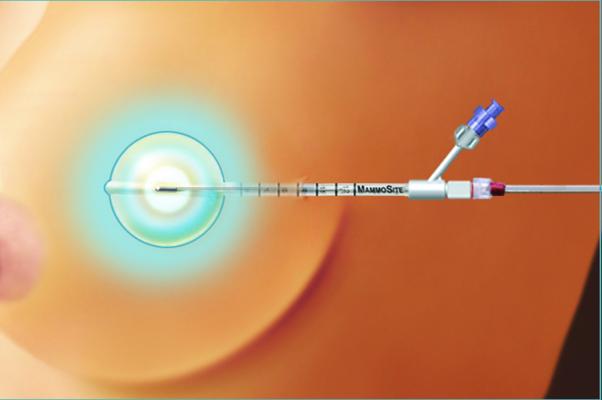
October 31, 2017 — Cleveland Clinic researcher Chirag Shah, M.D., recently led the development of updated guidelines for the appropriate and safe utilization of accelerated partial-breast irradiation (APBI). The guidelines are published online in the journal Brachytherapy.
APBI is a breast radiation therapy technique in which targeted radiation is delivered, either via brachytherapy (applicator devices or multiple catheters) or through external radiation, specifically to the part of the breast where the tumor was removed without treating the whole breast.
For patients with ductal carcinoma in situ (DCIS) and early-stage invasive breast cancer, APBI has been shown to be an alternative to standard whole-breast irradiation, allowing for a reduction in the duration of radiation therapy. The technique, by reducing the amount of normal healthy breast tissue treated with radiation, may also reduce side effects of treatment and improve cosmetic outcomes.
In updating the guidelines, Shah led a group of physicians — appointed by the American Brachytherapy Society, with expertise in breast cancer and breast brachytherapy — to develop a consensus statement. The new guidelines recommend the technique for a broader group of patient by allowing younger patients to be eligible as well as those with DCIS. The authors' consensus is that the appropriate candidates for APBI include patients aged 45 years or older; all invasive histologies and ductal carcinoma in situ; tumors 3 cm or less; node negative; estrogen receptor positive/negative; no lymphovascular space invasion; and negative margins.
"The updated guidelines support clinicians by offering them the ability to appropriately select patients for APBI, and data that supports the techniques," said Shah. "Guidelines allow for the selection of patients who can finish radiation treatment in one week or less, compared to the traditional period of three to six weeks, and potentially a reduction in side effects depending on the APBI technique."
The previous APBI guidelines, also led by Shah, were developed in 2013. Since then, multiple randomized trials have been published which have increased the amount of data available to develop the updated guidelines. The authors' recommendation was based on review of literature including randomized trials, prospective studies, multi-institutional series, and single-institution reports addressing clinical outcomes and toxicities with APBI.
For more information: www.journals.elsevier.com/brachytherapy


 February 05, 2026
February 05, 2026 









